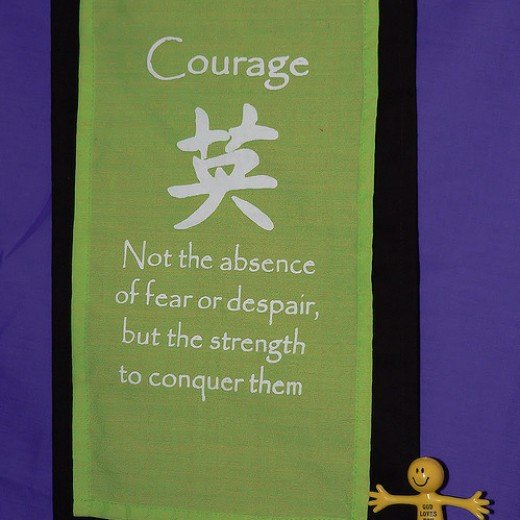Predictor of Author Success
 Welcome to Artist Entrepreneur Fridays, where we focus having a successful author career from the business and strategic perspectives. This week I have guest post from Tak Shiota, a Social Media Consultant with FriesenPress, leading the company’s social media efforts. He also trains authors on social media strategies. FriesenPress is a fee-for-service self-publisher. Tak offers up a straightforward way to determine if an author will be successful. Read on!
Welcome to Artist Entrepreneur Fridays, where we focus having a successful author career from the business and strategic perspectives. This week I have guest post from Tak Shiota, a Social Media Consultant with FriesenPress, leading the company’s social media efforts. He also trains authors on social media strategies. FriesenPress is a fee-for-service self-publisher. Tak offers up a straightforward way to determine if an author will be successful. Read on!
^*^
Want to know how you can tell if an author is going to be successful? It’s not their sales figures, or the number of Facebook friends, or Twitter followers, or the number of visits to their blog. Those things measure current success – but what it doesn’t tell you is whether they can sustain it, whether they have a career as a writer, or whether they’ll create a bestseller one day. The best indicator is to ask an author the following question:
“Where do you see yourself (as an author) in five years?”
If an author hesitates for an answer, or if they’ve never thought about it before, they probably won’t be very successful. It’s as simple as that.
It’s an interesting phenomenon – because if you ask the same authors what their dreams as an author are, they might talk about making the NY Times Bestseller List, or being on talk shows, or selling a million copies. Yet if you ask them a concrete question about a specific time in the future, they’ve never thought about it. And that, in a nutshell, is the problem. If you don’t have a plan on how you’re going to get from point A (where you are now) to point B (where you want to be), you’re never going to get there. You’ll get frustrated and give up in a few months.
The good news is that it’s easy to come up with a plan. Let’s say in five years you want to be a NY Times Bestseller – now work backward and ask yourself what you need to do before you can get there:
- How many books do bestsellers typically sell?
- How many people on your social networks/email lists would you need to have to reach enough people to sell to that many people? Use your conversion rate right now, and that will give you a rough idea. If you don’t know what your conversion rate is, calculate it by dividing the number of people you have by the number of sales you’ve made through that channel.
- How can you gain the required number of people on your social media/email lists? How many people do you need to gain every month, every week, every day between now and then?
- How can you gain enough fans each day to meet that quota?
- Do you need to do any speaking engagements? How many do you need to do a year?
- Once you hit a certain number of fans after the first year, how can you leverage those fans to gain more fans or to keep them interested? Contests? Videos? A new book? How about for the second year? The third year?
- Etc…
You can see that even with this lofty goal, you can begin to create concrete steps for each day, each month, and each year. Once you have it down to daily increments, you’ll be surprised how do-able it seems. More importantly, you’ll know what you have to do each day to get to your goal. You won’t be spending your valuable time trying random marketing tactics and wondering why things aren’t working. By the end of your five year plan (or even ten or twenty!), you’ll be a lot closer to your dream than you ever thought possible.
Don’t be afraid to constantly tweak the plan either – just remember to be honest with yourself, with your time commitments, and with your priorities. The great thing about having a plan is that you can genuinely celebrate small steps, because you can clearly see how it’s connected to your ultimate dream. Embrace that, and you’ll begin to feel successful today, right now!







This is a wonderful, insightful post. Having a plan is important. I think that sometimes it becomes difficult for writers to work what they have outlined because today we must balance the business of writing with the passion of the craft.
The business side,{marketing/networking/logistics etc.}, can be frustrating because there is a tendency to work your plan based on the successes of others. With so much competition in today’s markets writers can easily lose their focus and core values. While there is no shortage of success models to to take notes on we can’t lose the passion for the who and why we write or speak.
With the changing landscape of traditional publishing it is the love of writing that will center your focus in tough times. As someone working to get himself going again as a writer, the business is a grinder and at times intimidating because of its business elements. I do have a background in business but if I had my way I would much rather just write. I find that I spend a lot of time tweeting and blogging, leaving my characters lonely–their plots aging. What have we become?
Hi CJ,
I think that’s a common issue that many writers face. Planning though, doesn’t necessarily mean that you have to sterilize the whole process. Although planning tweets and other things is important, you should also plan things to keep you motivated – reading, writing, and anything else that inspires you.
In short, when making a plan, remember to plan things that will keep you motivated!
Also, you can always blog/tweet about your characters (or even AS your characters). This can be a helpful way to keep you engaged, and provide content for your fans!
Good luck!